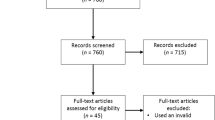Abstract
Research on perfectionism has suggested that a strong association exists between the setting and striving for excessively high standards. However, the motivational aspects of perfectionism have yet to be empirically identified. The purpose of the present study was to evaluate the usefulness and psychometric properties of a new goal commitment scale by assessing commitment to perfection in seven content areas. In addition to identifying individual differences in perfectionism goal commitment, the current research also investigated the association between commitment to perfectionism and trait indices of perfectionism. A sample of 261 students rated degree of commitment to perfectionistic goals and completed two multidimensional perfectionism scales that assess the personal and social aspects of perfectionism. Analyses confirmed the presence of individual differences in perfectionism goal commitment. Correlational tests revealed that the trait perfectionism dimensions were correlated with the goal commitment measure, but the findings varied as a function of the specific perfectionism goal. Overall, the current data are consistent with the view that the perfectionism construct has a salient motivational component. Our findings suggest that the assessment of goal commitment is a useful means of examining specific facets of the perfectionism construct.
Similar content being viewed by others
References
Brunstein, J. C. (1993). Personal goals and subjective well-being: A longitudinal study.Journal of Personality and Social Psychology, 65, 1061–1070.
Burns, D. (1980).Feeling good: The new mood therapy. New York: New American Library.
Burns, D. (1983). The spouse who is a perfectionist.Medical Aspects of Human Sexuality, 17, 219–230.
Druss, R., & Silverman, J. (1979). Body image and perfectionism of ballerinas.General Hospital Psychiatry, 2, 115–121.
Erez, M., & Kanfer, G. (1983). The role of goal acceptance in goal setting and task performance.Academy of Management Review, 8, 454–463.
Erez, M., & Zidon, I. (1984). Effect of goal acceptance on the relationship of goal difficulty to performance.Journal of Applied Psychology, 69, 69–78.
Flett, G. L., Hewitt, P. L., Blankstein, K. R., & Koledin, S. (1991). Dimensions of perfectionism and irrational thinking.Journal of Rational-Emotive and Cognitive Behavior Therapy, 9, 185–201.
Flett, G. L., Hewitt, P. L., Blankstein, K. R., & Dynin, C. (1994). Dimensions of perfectionism and Type A behaviour.Personality and Individual Differences, 16, 477–485.
Flett, G. L., Hewitt, P. L., & Davidson, L. (1994).Perfectionism and psychological needs: A motivational analysis. Manuscript submitted for publication
Flett, G. L., Russo, F. A., & Hewitt, P. L. (1994). Dimensions of perfectionism and constructive thinking as a coping response.Journal of Rational-Emotive and Cognitive Behavior Therapy, 12, 163–179.
Frost, R., & Henderson, K. J. (1991). Perfectionism and reactions to athletic competition.Journal of Sport and Exercise Psychology, 13, 323–335.
Frost, R., Marten, P., Lahart, C., & Rosenblate, R. (1990). The dimensions of perfectionsm.Cognitive Therapy and Research, 14, 449–468.
Frost, R., Heimberg, R., Holt, C., Mattia, J., & Neubauer, A. (1993). A comparison of two measures of perfectionism.Personality and Individual Differences, 14, 119–126.
Hamachek, D. (1978). Psychodynamics of normal and neurotic perfectionism.Psychology, 15, 27–33.
Hewitt, P., & Flett, G. (1989). The Multidimensional Perfectionism Scale: Development and validation.Canadian Psychology, 30, 339 (abstract).
Hewitt, P., & Flett, G. (1990). Perfectionism and depression: A multidimensional analysis.Journal of Social Behavior and Personality, 5, 423–438.
Hewitt, P., & Flett, G. (1991). Perfectionism in the self and social contexts: Conceptualization, assessment, and association with psychopathology.Journal of Personality and Social Psychology, 60, 456–470.
Hewitt, P., & Flett, G. (1993). Dimensions of perfectionism, daily stress, and depression: A test of the specific vulnerability hypothesis.Journal of Abnormal Psychology, 102, 58–65.
Hewitt, P., Flett, G., Turnbull-Donovan, W., & Mikail, S. (1991). The Multidimensional Perfectionism Scale: Reliability, validity, and psychometric properties in psychiatric samples.Psychological Assessment: A Journal of Consulting and Clinical Psychology, 3, 464–468.
Hollenbeck, J., & Klein, H. (1987). Goal commitment and the goal-setting process: Problems, prospects, and proposals for future research.Journal of Applied Psychology, 74, 212–220.
Hollenbeck, J., Williams, C., & Klein, H. (1989). An empirical examination of the antecedents of commitment to difficult goals.Journal of Applied Psychology, 74, 18–23.
Johnson, D. S., & Perlow, R. (1992). The impact of need for achievement components on goal commitment and performance.Journal of Applied Social Psychology, 22, 1711–1720.
Klinger, E. (1977).Meaning and void: Inner experience and the incentives in people's lives. Minneapolis: University of Minnesota Press.
Locke, E., & Latham, G. (1990).A theory of goal setting and task performance. Englewood Cliffs, NJ: Prentice Hall.
Locke, E., Shaw, K., Saari, L., & Latham, G. (1981). Goal setting and task performance: 1969–1980.Psychological Bulletin, 90, 125–152.
Locke, E., Latham, G., & Erez, M. (1988). The determinants of goal commitment.Academy of Management Review, 13, 23–39.
Mone, M., & Baker, D. (1992). Cognitive, affective, and behavioral determinants and consequences of self-set goals: An integrative, dynamic model.Human Performance, 5, 213–234.
Ostell, A. (1992). Absolutist thinking and emotional problems.Counselling Psychology Quarterly, 5, 161–176.
Pacht, A. (1984). Reflections on perfection.American Psychologist, 78, 386–390.
Sandler, J., & Hazari, A. (1960). The “obsessional”: On the psychological classification of obsessional character traits and symptoms.British Journal of Medical Psychology, 33, 113–122.
Tubbs, M. E. (1993). Commitment as a moderator of the goal-performance relation: A case for clearer construct definition.Journal of Applied Psychology, 78, 86–97.
Author information
Authors and Affiliations
Rights and permissions
About this article
Cite this article
Flett, G.L., Sawatzky, D.L. & Hewitt, P.L. Dimensions of perfectionism and goal commitment: A further comparison of two perfectionism measures. J Psychopathol Behav Assess 17, 111–124 (1995). https://doi.org/10.1007/BF02229013
Accepted:
Issue Date:
DOI: https://doi.org/10.1007/BF02229013




